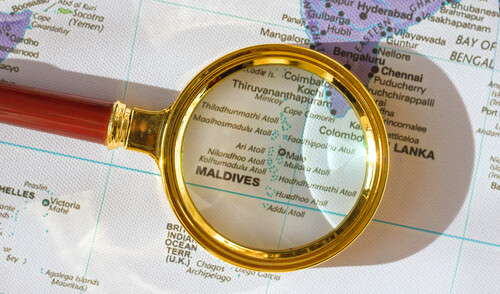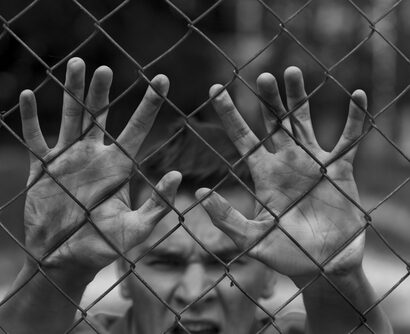Abstract: The Maldives, a sought-after tourist destination, recently faced significant backlash as Indian tourists, constituting 11% of its market, boycotted the archipelagic nation following derogatory remarks about Indian PM Narendra Modi and Indian culture by three deputy ministers of President Mohamed Muizzu’s administration. Subsequently, influential figures, including cricketers and Bollywood actors, have redirected the irked Indian public’s focus to alternative domestic destinations. China’s support for the new Maldivian president and his policies have further intensified geopolitical tensions. Amidst a whirl of changing economic ties and strategic shifts, the Maldives signed undisclosed agreements with China, underscoring its complex position. As India’s response to the above-mentioned controversy involves business suspensions, diplomatic talks, and social media activism, the intricate interplay between tourism, geopolitics, and economic dependence in the region becomes crucial.
Problem statement: How to understand the Maldives’ broader issue of navigating geopolitical tensions, economic dependencies on China’s Belt and Road Initiative, and the delicate balance between strategic alliances and tourism dynamics?
So what?: Diplomatic efforts should prioritise rebuilding ties between India and Maldives through sincere apologies and remedial measures. Both nations must transparently communicate their commitment to international relations while considering the impact of economic dependencies. Cultivating positive engagement with influencers and advocating for responsible tourism practices can help regain trust and stability in the tourism market.

Tourism Statistics and Backlash
In 2023, the Maldives witnessed a surge in tourism, with Indian tourists making up a substantial 11% of the total, contributing more than 209,000 trips. Not far behind, Russia and the People’s Republic of China (PRC) each played a significant role, representing 11% and 10% of the total visits, respectively.[1] This surge, however, was met with an unexpected decline as recent remarks about Indian PM Narendra Modi and Indian culture by three deputy ministers of President Mohamed Muizzu’s administration triggered a strong backlash from Indian tourists.[2] Fuelled by discontent, Indian travellers took to social media platforms, initiating a campaign under the hashtag #BoycottMaldives.[3]
Political Fallout and Diplomatic Interactions
The political fallout from the derogatory remarks against Indian Prime Minister Narendra Modi, describing him as a “clown,” “terrorist” and a “puppet of Israel,” according to Reuters, led to the suspension of three deputy ministers in the Maldives. The ministers, Malsha Shareef, Mariyam Shiuna, and Abdulla Mahzoon Maajid, were suspended indefinitely for their posts on social media platform X. The suspension followed Prime Minister Modi’s promotion of the pristine beaches of Lakshadweep, an Indian archipelago off the southwestern coast of the mainland, which drew strong reactions from the now-suspended ministers.
The political fallout from the derogatory remarks against Indian Prime Minister Narendra Modi led to the suspension of three deputy ministers in the Maldives.
In response to the diplomatic tensions, Maldives High Commissioner Ibrahim Shaheeb was summoned to the Ministry of External Affairs in New Delhi. During this meeting, senior Maldivian official Ali Naseer Mohamed conveyed to India’s High Commissioner Munu Mahawar that the derogatory remarks made by the suspended ministers did not represent the official views of the island country. Naseer reaffirmed the Maldives’ continued support for its neighbour in mending diplomatic ties strained by the recent events.
Celebrity Influence and Calls for Domestic Tourism
The discontent among Indian tourists found resonance among prominent figures, including Bollywood actors and cricketers, who leveraged their influence to urge fans to explore local destinations. One of Bollywood’s leading stars, Akshay Kumar, known for his roles with patriotic themes, strongly criticised the Maldivian officials’ remarks as “hateful and racist.” Kumar, a frequent visitor to the Maldives, took to social media, stating, “We are good to our neighbors but why should we tolerate such unprovoked hate? I’ve visited the Maldives many times and always praised it, but dignity first. Let us decide to #ExploreIndianIslands and support our own tourism”.[4] Another hashtag, #ChaloLakshadweep (Let’s go to Lakshadweep), gained momentum as it echoed the sentiment of redirecting tourism toward domestic destinations.
Business and Travel Industry Responses
The travel industry played a pivotal role in echoing public sentiment. EaseMyTrip, a major Indian travel site, announced on January 08, 2023, that it had suspended all flight bookings to the Maldives as a sign of solidarity with the nation. Nishant Pitti, the CEO and co-founder of EaseMyTrip, declared the suspension through a post on social media, stating, “In solidarity with our nation, @EaseMyTrip has suspended all Maldives flight bookings.” Simultaneously, the Confederation of All India Traders, a significant trade body, called its members to suspend business with the Maldives until an apology or remedial measures were extended.[5]
The PRC’s Support and Geopolitical Dynamics
The PRC’s involvement in the unfolding situation have added a layer of complexity to the geopolitical landscape. In a show of support, the PRC pledged to assist the Maldives in maintaining national sovereignty and vehemently opposed external interference in the internal affairs of the Indian Ocean archipelago.[6] While the timing of international support for the Maldives is indeed noteworthy, it is essential to delve into the broader geopolitical landscape. President Muizzu’s strategic alignment with China, exemplified by his leveraging of the India-Out campaign during elections, calls for the withdrawal of Indian troops from Maldivian soil, and a comprehensive review of bilateral agreements with India, have significantly altered the geopolitical dynamics. Departing from traditional diplomatic norms, Muizzu prioritised visiting countries like Turkey, UAE, and China after assuming power rather than making India his initial port of call. Moreover, the Maldives’ heightened participation in China’s Belt and Road Initiative (BRI) raises eyebrows against the backdrop of India’s ongoing developmental projects in the region. The government of the Maldives has recently finalised a $37 million agreement with a Turkish firm to procure military drones. This contractual arrangement signals a notable change in geopolitical dynamics, potentially impacting maritime security in the Indian Ocean Region (IOR).[7]
In a show of support, the PRC pledged to assist the Maldives in maintaining national sovereignty and vehemently opposed external interference in the internal affairs of the Indian Ocean archipelago.
During the State Visit of the newly elected Maldivian President Mohamed Muizzu to Beijing, the PRC took a proactive stance in upgrading its relationship with the Maldives. Speaking at the Great Hall of the People, Chinese President Xi Jinping referred to Muizzu as “an old friend” and announced a “comprehensive strategic cooperative partnership” between the two nations. Xi reiterated the PRC’s firm support for the Maldives’ national sovereignty, independence, and dignity.[8] This move by the PRC, with its implications for increased investment in the island nation, further underscored the evolving geopolitical dynamics in the region.
Geoeconomic Context and Belt and Road Initiative
The Maldives, often celebrated as one of South Asia’s most expensive holiday destinations, has become more than just a tourist haven. Its geopolitical significance has risen, particularly in the context of economic ties and strategic alliances. As a crucial maritime crossroads, the archipelago is pivotal for regional stability and security. Furthermore, its growing economic ties, especially with key players like India and strategic alliances with nations such as China, underscore the Maldives’ evolving role in shaping the geopolitical landscape of South Asia. Besides being the largest contributor to Maldives’ tourism, India also maintains a strategic presence with military personnel and helicopters stationed on the islands.[9]
However, the situation has witnessed a shift with the election of President Mohamed Muizzu, who is perceived as pro-China. Muizzu’s party has actively embraced funds from the PRC’s Belt and Road infrastructure program, a cornerstone of Chinese President Xi Jinping’s initiative to expand the PRC’s influence.[10] This association has led to strained relations between the Maldives and India.
Muizzu’s party has actively embraced funds from the PRC’s Belt and Road infrastructure program, a cornerstone of Chinese President Xi Jinping’s initiative to expand the PRC’s influence.
Former Maldivian President Abdulla Yameen, who mentored Muizzu, heavily borrowed from Beijing for construction projects. Consequently, the Maldives found itself owing a substantial 42% of its total external debts, surpassing $3 billion, to Beijing in 2021, as reported by the World Bank.[11] This economic dependence has added a layer of complexity to the geopolitical dynamics, influencing decision-making and alliances.
Further, Muizzu’s State Visit to Beijing resulted in the signing of several agreements between China and the Maldives. These agreements covered areas such as climate, agriculture, and infrastructure.[12] However, both sides remained tight-lipped about these agreements’ specific details and values, leaving room for speculation and adding an air of mystery to the unfolding events.
A Clash of Diplomatic Interests
Once primarily known for its luxury tourism, the Maldives has emerged as a geopolitical hotspot with implications beyond its pristine beaches. The delicate balance between economic ties, political alliances, and tourism dynamics has brought to the forefront the multifaceted nature of international relations in the South Asian region. As Indian tourists express their discontent and influential figures advocate for domestic alternatives, the evolving situation in the Maldives reflects a clash of diplomatic interests and the intricate interplay between economic forces and regional power dynamics.Top of FormBottom of Form
Vanshika Sirohi is a postgraduate student at the Jindal School of International Affairs and Centre Coordinator at the Centre for Security Studies, JSIA. She completed her undergraduate degree in Political Science from Kirori Mal College, University of Delhi. She is passionate about international relations, security studies, and contemporary warfare. She has contributed to the field as an accomplished writer through insightful publications, including issue briefs, book reviews, and dialogue session reports. Specialising in terrorism and counter-terrorism, defence strategies, and global security dynamics, Vanshika brings a discerning perspective to intricate geopolitical issues. The views contained in this article are the author’s alone and do not reflect the opinions or positions of the Centre for Security Studies.
[1] Chris Lau, Heather Law, Manveena Suri, and Vedika Sud, “Why Modi’s Beach Shots Sparked Calls for an Indian Boycott of Maldives Tourism,” CNN, January 09, 2024, https://edition.cnn.com/2024/01/09/india/maldives-india-modi-tourism-boycott-intl-hnk/index.html.
[2] Jasmin Nihalani and Vignesh Radhakrishnan, “Indian Tourists Boycott Call Post Modi Visit to Lakshadweep May Impact Maldives,” The Hindu, January 11, 2024, https://www.thehindu.com/data/indian-tourists-boycott-call-post-modi-visit-to-lakshadweep-may-impact-maldives-data/article67725706.ece.
[3] Idem.
[4] Idem.
[5] “#ChaloLakshadweep: EaseMyTrip Suspends All Maldives Flight Bookings amid India-Maldives Row,” Times of India Travel, January 08, 2024, https://timesofindia.indiatimes.com/travel/travel-news/chalolakshadweep-easemytrip-suspends-all-maldives-flight-bookings-amid-india-maldives-row/articleshow/106632249.cms.
[6] Rohit Rohit, “Maldives Upgrades Relations with China as India Ties Take a Hit over Lakshadweep Row,” News18, January 11, 2024, https://www.news18.com/world/maldives-upgrades-relations-with-china-as-india-ties-take-a-hit-over-lakshadweep-row-8736014.html.
[7] Surinder Singh Oberoi, “Maldives Signs $37-Million Deal with Turkey for Surveillance Drones,” Greater Kashmir, January 17, 2024, https://www.greaterkashmir.com/latest-news/maldives-signs-37-million-deal-with-turkey-for-surveillance-drones/.
[8] Idem.
[9] Rosie Frost, “Why Are Indian Tourists Boycotting the Maldives?,” euronews, last accessed January 21, 2024, https://www.euronews.com/travel/2024/01/11/indian-pms-holiday-snaps-spark-row-that-leads-to-boycott-of-travel-to-the-maldives.
[10] “China Fully Supports Sovereignty of the Maldives; Bilateral Ties Set to Achieve New Heights: President Muizzu,” The Economic Times, last accessed January 21, 2024, https://economictimes.indiatimes.com/news/international/world-news/china-fully-supports-sovereignty-of-the-maldives-bilateral-ties-set-to-achieve-new-heights-president-muizzu/articleshow/106861480.cms?from=mdr.
[11] Idem. [12] “China’s Xi Jinping Says Supports Maldives in Protecting ‘Sovereignty’: State Media,” The Economic Times, last accessed January 21, 2024, https://economictimes.indiatimes.com/news/international/world-news/chinas-xi-says-supports-maldives-in-protecting-sovereignty-state-media/articleshow/106712229.cms?from=mdr.





